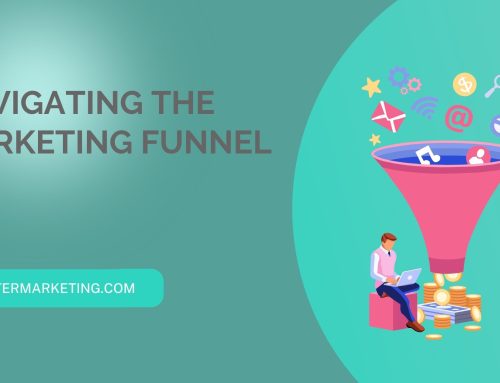Content marketing for law firms, in broad terms, involves sharing written, visual, or video content for marketing purposes. Often, the content shared will be used to build trust, increase the overall value of services, or improve search visibility. There is a plenteous range of different types of content that can be used to market law firms.
Here’s a quick highlights reel of some of the common types of content marketing:
Some of the types of content marketing we regularly work with are:
- Blog posts.
- eBooks.
- Whitepapers.
- Earned media contributions/external articles.
- Press releases.
- Email newsletters and marketing campaigns.
- Podcasts.
Why should law firms use content marketing?
Content marketing is used as part of the process of attracting customers to your website or social media. It achieves this by creating and publishing content that appeals to the audience. The content might answer a question they have, solve a problem, entertain or persuade them, or pique their curiosity.
Additionally, content marketing can help your law firm (amongst other things):
- Attract new clients.
- Nurture existing clients.
- Pre-empt common questions – thereby reducing the time your lawyers spend answering them, freeing them up to focus on more meaningful client work.
- Increase the perceived value of your services.
- Streamline your client onboarding.
- Increase your SEO and search engine visibility.
- Rank higher on Google and other search engines.
- Position your law firm as trusted and reputable.
Different Types of Content Marketing for Law Firms
Below, we’ll dig deeper into some of the different types of content marketing for law firms – as well as how they can help your firm achieve its marketing goals.
Blogging for law firms
A blog is a style of website (or part thereof) that discusses discrete topics in separate blog posts. Each blog post offers information that attracts and informs the reader.
Usually, the content is presented in a specific order: the latest content appears before older blogs. But this isn’t always recommended for law firm blogs, particularly law firms with multiple practice areas. Instead, legal blogs should be carefully categorized and should be searchable via those categories. This makes it easier for your clients to find the content relevant to them.
Blogging is about building connections and creating communities. For law firms, each blog post offers an opportunity to inform, engage, and delight existing and prospective clients. This can be a significant competitive advantage, resulting in more leads and more referrals.
Some of the other business benefits of including a blog on your law firm’s website include:
- Stronger brand image.
- Improved customer retention and loyalty.
- Increased visibility on search engines.
Law firms with blogs are more likely to be found on Google.
This is because blog posts can address the keywords and keyword phrases your potential clients are looking for in more detail. Longer content on an individual topic is more likely to rank highly via an online search.
Blog posts can drive traffic to your law firm’s services pages too. The best way to go about this is to create compelling content that provides visitors with information that addresses their needs or pain points. Then, you include a call to action at the end of the blog post that directs visitors to the relevant service area and/or to other relevant content. The longer your potential clients spend clicking through your website, the better (for Google).
Email marketing for law firms
Email marketing is an effective digital strategy your law firm can use to connect with current clients and nurture potential clients. Well-executed email marketing helps convert prospective clients into paying clients and existing clients into high-value ones.
You can use email marketing to develop trust, create value, and start a dialogue with your subscribers. You can keep your clients updated with what’s happening at your law firm – awards you’ve won, blogs you’ve published, and events you’re running. It’s an easy way to foster connection and keep your law firm’s name in front of your audience. Of course, you can also use it to answer queries about your services to move people who are aware of your law firm through your marketing funnel.
Email Marketing in Practice
We recently published a blog post sharing our work with CGL LLP’s weekly newsletter – The Weekly Brief. CGL’s weekly newsletter is emailed out to more than 1,100 subscribers each week – and has been since May 2020. The weekly newsletter’s performance is above industry standards, with a third-party provider commenting on the incredibly low number of unsubscribes CGL’s email marketing campaigns receive each week.
The newsletter regularly generates leads and prompts new queries from existing clients. It has also helped to increase CGL’s visibility online since the newsletter content is upcycled to generate weekly blog posts and video content.
eBooks for law firms
The term eBook (short for electronic book) refers to a very broad class of long-form online content. This category of content covers the electronic versions of all your favourite classics that you read on your eReader. But it also includes a growing body of content prepared by businesses (including law firms) to comprehensively cover topics for curious readers.
There are many differences between eBooks created for marketing purposes and eBooks for leisurely reading, but one is particularly significant: the price tag.
Marketing eBooks are generally available in exchange for the email address of the person downloading the content. Law firms wouldn’t usually ask for monetary payment in exchange for the eBook content.
Marketers are increasingly using eBooks to help law firms generate leads, build authority, and add value for current and potential clients. These eBooks cover broad topics and are built on a solid foundation of a strategy to generate clicks and rise through the Google rankings.
Another benefit is that longer content is more likely to rank on the first page of Google. So, your law firm can use the length of your eBooks to your advantage and give your content its best chance of ranking highly.
White Papers for Law Firms
A whitepaper is any report on a particular topic that is authoritative and persuasive. It carefully analyses a problem and provides practical solutions to it, as well as real-world examples. Whitepapers have proven to be one of the best ways for law firms to capture leads. It is a form of marketing that persuades clients, promotes your services, and garners Google hits.
To reap the benefits of whitepapers for business growth, the published papers should be comprehensive practical and directed toward one topic. Additionally, whitepapers are most effective when they:
- Form part of your law firm’s overall content marketing strategy.
- Are well-written, well-researched, and relatively free of jargon.
- Address a topic your readers are interested in.
- Are research-backed and rely on credible sources.
- Are thoughtfully designed and branded.
If your law firm needs help establishing a strategic content marketing plan, reach out. We’d love to assist! (And your initial assessment is free!).







Leave A Comment
You must be logged in to post a comment.